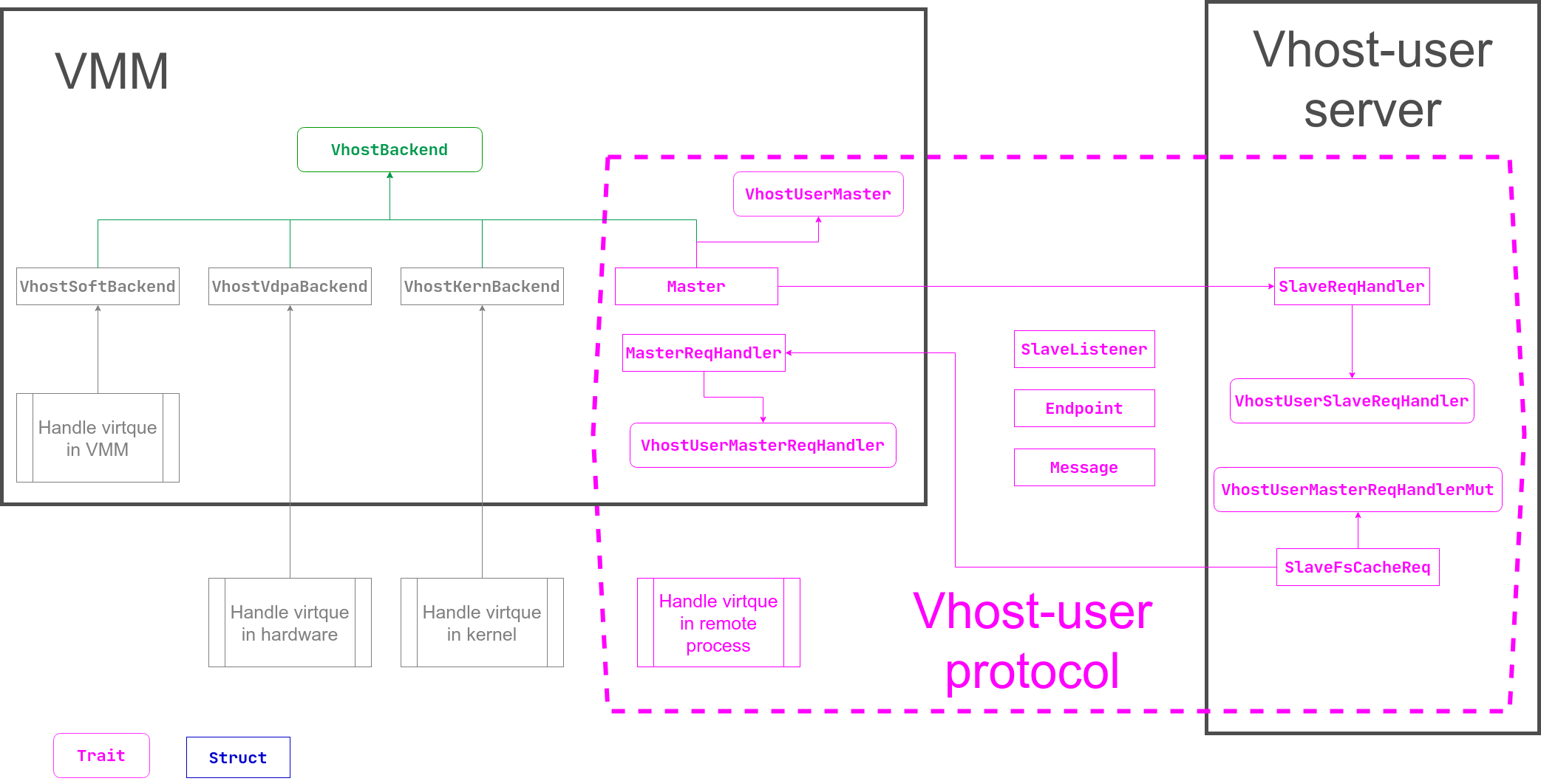mirror of
https://chromium.googlesource.com/crosvm/crosvm
synced 2025-02-06 02:25:23 +00:00
Having a default protocol implementation is dangerous, as implementors can just ignore this method and return an erroneous type. BUG=None TEST=cargo build Change-Id: Iee7dbcf563be1e5b15903b0fd7bdfb7ff5823545 Reviewed-on: https://chromium-review.googlesource.com/c/chromiumos/platform/crosvm/+/3565619 Reviewed-by: Keiichi Watanabe <keiichiw@chromium.org> Tested-by: kokoro <noreply+kokoro@google.com> Reviewed-by: Noah Gold <nkgold@google.com> Commit-Queue: Alexandre Courbot <acourbot@chromium.org> |
||
|---|---|---|
| .. | ||
| .buildkite | ||
| .cargo | ||
| .github | ||
| docs | ||
| src | ||
| .gitignore | ||
| .gitmodules | ||
| Cargo.toml | ||
| CODEOWNERS | ||
| LICENSE | ||
| LICENSE-BSD-3-Clause | ||
| LICENSE-BSD-Chromium | ||
| README.md | ||
vHost
A pure rust library for vhost-user. This is a fork of rust-vmm/vhost.
The vhost-user protocol aims to implement vhost backend drivers in userspace, which complements the ioctl interface used to control the vhost implementation in the Linux kernel. It implements the control plane needed to establish virtqueue sharing with a user space process on the same host. It uses communication over a Unix domain socket to share file descriptors in the ancillary data of the message.
The protocol defines two sides of the communication, master and slave. Master is the application that shares its virtqueues, slave is the consumer of the virtqueues. Master and slave can be either a client (i.e. connecting) or server (listening) in the socket communication.
